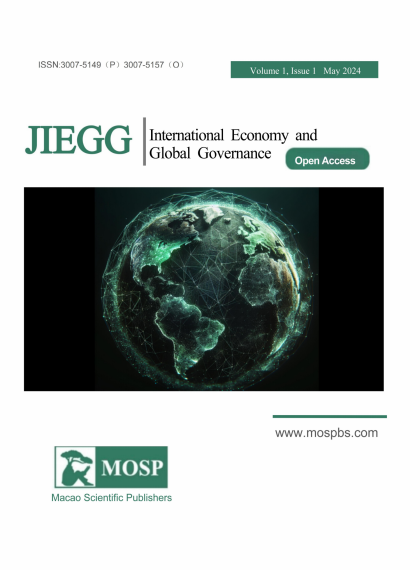-
Abbie Tingstad, Scott Savitz, Benjamin J. Sacks, et al. (2023). Report on the Arctic Capabilities of the U.S. Armed Forces. CA: RAND Corporation. https://www.rand.org/pubs/research_reports/RRA1638-1.html
-
Alter, K. J., & Raustiala, K. (2018). The Rise of International Regime Complexity. Annual Review of Law and Social Science, 14, 329-349.
-
Arctic Council. (1996). Declaration on the Establishment of the Arctic Council. https://oaarchive.arctic council.org/server/api/core/bitstreams/bdc15f51-fb91-4e0d-9037-3e8618e7b98f/content.
-
Arctic Council. (2009).TROMSØ DECLARATION On the occasion of the Sixth Ministerial Meeting of The Arctic Council. https://oaarchive.arctic-council.org/server/api/core/bitstreams/4c172f70-8eb2-4289-aabd-f000f8177835/content.
-
Arctic Council. (2011). Senior Arctic Officials (SAO) Report to Ministers. https://oaarchive.arctic-council.org/server/api/core/bitstreams/1cfdc7b2-3bf9-480f-b2bb-e81b4abfe6d4/content.
-
Arctic Council. (2013). Arctic Council Observer Manual for Subsidiary Bodies. https://oaarchive.arctic-council.org/server/api/core/bitstreams/43c1f004-b13d-4fac-9c19-ba2bf5ff414f/content.
-
Arctic Council. (2013). Arctic Council Rules of Procedure. https://oaarchive.arctic-council.org/server/api/core/bitstreams/6e73a734-2f8b-40f6-849a-245ef9942790/content.
-
Arctic Council. (2017). Agreement on Enhancing International Arctic Scientific Cooperation. https://oaarchive.arctic-council.org/handle/11374/1916?show=full.
-
Arctic Council. (2021). Arctic Council Strategic Plan 2021 to 2030. https://oaarchive.arctic-council.org/server/api/core/bitstreams/118e0bce-9013-460a-81e0-1dbd0870ee05/content.
-
Arctic Economic Council. (2016). Membership Application Process. https://arcticeconomiccouncil.com/wp-content/uploads/2017/02/AEC-Membership-App.pdf.
-
Arctic Economic Council. (2016). Rules of Procedure. https://arcticeconomiccouncil.com/wp-content/uploads/2019/05/AEC-Rules-of-Procedure-4.pdf.
-
European Commission. (2021). A stronger EU engagement for a peaceful, sustainable and prosperous Arctic. https://www.eeas.europa.eu/sites/default/files/2_en_act_part1_v7.pdf.
-
Falin, Z. (2022). Institutional Statecraft in International Politics: Concept ,Logic, and Strategy. Northeast Asia Forum, 31(05), 44-61+127-128.
-
Farrell, H., & Newman, A. L. (2019). Weaponized Interdependence: How Global Economic Networks Shape State Coercion. International Security, 44(1), 42-79.
-
Finnemore, M. (1996). National Interests in International Society. Cornell University Press.
-
Government of Canada. (2017). Strong, Secure, Engaged: Canada’s Defense Policy. https://www.canada.ca/content/dam/dnd-mdn/documents/reports/2018/strong-secure-engaged/canada-defence-policy-report.pdf..
-
Government of Iceland. (2021). Iceland’s Policy on Matters Concerning the Arctic Region. https://www.government.is/library/01-Ministries/Ministry-for-Foreign-Affairs/PDF-skjol/Arctic%20Policy_WEB.pdf.
-
Government Offices of Sweden. (2020). Sweden's strategy for the Arctic Region. https://www.government.se/contentassets/85de9103bbbe4373b55eddd7f71608da/swedens-strategy-for-the-arctic-region-2020.pdf.
-
Henning, C. R. (2023). International regime complexity in sovereign crisis finance: a comparison of regional architectures. Review of International Political Economy, 30(6), 2069-1093.
-
Holsti, K. J. (1992). International Politics: A Framework for Analysis. Prentice-Hall.
-
Johnston, A. I. (2008). Social States: China in International Institutions,1980 —2000. Princeton University Press.
-
Keohane R.O. (1982). The demand for international regimes. International Organization, 36(2), 325-255.
-
Keohane R.O. (1984). After Hegemony Cooperation and Discord in the World Political Economy. (pp.110-120). New Jersey: Princeton University Press.
-
Krasner, S. D. (1991). Global Communications and National Power: Life on the Pareto Frontier. World Politics, 43(3), 336-366.
-
Ministry of Foreign Affairs of Denmark. (2011) . Kingdom of Denmark Strategy for the Arctic 2011–2020. https://um.dk/en/-/media/websites/umen/foreign-policy/the-artic/arctic-strategy.ashx.
-
NATO. (1999). Membership Action Plan (MAP). https://www.nato.int/cps/en/natohq/official_texts_27444.htm
-
NATO. (2021). Rules of Procedure. https://www.nato-pa.int/download-file?filename=/sites/default/files/2021-05/087%20GEN%2021%20E%20Rules%20of%20Procedure%20Online%20Spring%20Session%20Sweden.pdf.
-
NATO. (2024). NATO on the Map. https://www.nato.int/nato-on-the-map/#layer-1&lat=58.36081006710506&lon=-2.8852579855909655&zoom=-1.
-
Navy Office Of Information. (2018). CNO Announces Establishment of U.S. 2nd Fleet. https://www.c2f.usff.navy.mil/Press-Room/News-Stories/Article/1822763/cno-announces-establishment-of-us-2nd-fleet/.
-
Norway Government. (2021). The Norwegian Government's Arctic Policy. https://www.regjeringen.no/globalassets/departementene/ud/vedlegg/nord/whitepaper_abstract2020.pdf.
-
Prime Minister’s Office of Finland. (2021). Finland’s strategy for Arctic policy. https://julkaisut.valtioneuvosto.fi/bitstream/handle/10024/163245/VN_2021_53.pdf?sequence=1&isAllowed=y.
-
Stephen, K. (1978). Defending the National Interest: Raw Materials Investments and U.S. Foreign Policy. Princeton University Press.
-
Stephen, M. D., & Stephen, K. (2020). The Integration of Emerging Powers into Club Institutions: China and the Arctic Council. Global Policy, 11(S3), 51-60.
-
The State Council of The People’s Republic of China. (2023). Joint Statement of the People's Republic of China and the Russian Federation on Deepening the Comprehensive Strategic Partnership of Coordination for the New Era. https://www.gov.cn/xinwen/2023-03/22/content_5747726.htm.
-
UK Defense Ministry. (2022). The UK’s Defense Contribution in the High North March. https://assets.publishing.service.gov.uk/media/6241cd63d3bf7f32b2e52515/The_UK_s_Defence_Contribution_in_the_High_North.pdf.
-
US Department of Defense. (2019). Report to Congress Department of Defense Arctic Strategy. https://media.defense.gov/2019/Jun/06/2002141657/-1/-1/1/2019-DOD-ARCTIC-STRATEGY.PDF.
-
US Department of State. (2022). Joint Statement on Arctic Council Cooperation Following Russia’s Invasion of Ukraine. https://www.state.gov/joint-statement-on-arctic-council-cooperation-following-russias-invasion of-ukraine/.
-
US Department of State. (2023). Joint Statement on Limited Resumption of Arctic Council Cooperation. https://www.state.gov/joint-statement-on-limited-resumption-of-arctic-council-cooperation/
-
V.E. Boldyrev. (2018). The Northern Strategies of the United States and Canada:An Economic Perspective. Problems of Economic Transition, 60(10–11), 781–792.
-
Waltz, K. N. (1979). Theory of International Politics. Addison-Wesley Publishing Company.
-
Ye, T., & Yining, A. (2023). Mechanism Selection for Weaponized International Institution. World Economics and Politics(11), 24-60+160-161.
-
Zhiltsov, Sergey S. (2021). Russia and USA in their Rivalry for Arctic: New Stage. Post-Soviet Issues, 8(2), 182-191.
-
РИА Новости.(2023). Правительство России одобрило законопроекты о нефти и газе. https://ria.ru/20230311/zakonoproekty-1857216995.html.

